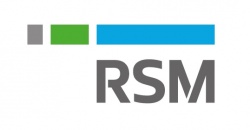Enter the Dragon: How managing finances in China’s currency could pay dividends
By John Casey, HSBC Head Commercial Banking, Europe
The opening up of China as a major international trading market in recent years has presented a unique opportunity for businesses from Europe.
Quick to realise the potential, the number of businesses from across the continent interacting with China has risen steadily as our leading firms seek to take advantage of the emerging market opportunities. And this trend shows no signs of slowing – a recent HSBC and European Business Awards survey of more than 500 leading corporates found that in the next three to six months one in four businesses plans to enter a new market.
For European business the Chinese opportunity is vast – with a population of billions, the country comprises 93 provinces, six of which are so large they would qualify for a place on the G20. Growth rates in the country are still very strong, with a large, still untapped internal market open to be explored. Production and development opportunities are available in all markets – and it’s not just manufacturing that should look to China for growth – there are huge opportunities for the service sector and professional services industries, supporting the growing economy.
Underpinning this expansion however there are also changes taking place in how we trade with China. Recent relaxation of rules around the international use of China’s currency, the Renminbi (RMB), has opened up new and highly advantageous opportunities to CEOs. Previously restricted, the RMB can increasingly be used for trade settlement and we are seeing new offerings from banks where RMB denominated accounts can be run from countries such as the UK – removing complications and uncertainty in trades in multiple currencies.
Trading in local currencies has obvious benefits for both sides in a trade deal – not least of all the removal of considerations about exchange rates and a clearer understanding of prices and values. Given existing and predicted trade volumes with Chinese businesses many believe that alongside the dollar and the Euro the RMB will become a top three international currency if it becomes fully convertible.
Even before all the restrictions on the RMB are removed however, and even in these early stages, evidence of the rising acceptance of RMB for trade is growing. This was highlighted in a recent survey by HSBC China among 1300 commercial banking customers in 18 cities which revealed eight out of 10 respondents who haven’t yet started using RMB, plan to do so in the future
Amongst the respondents, Shanghai, Beijing, Guangzhou and Shenzhen businesses showed highest interest in RMB settlement; 29 per cent planned to adopt RMB in the next 12 months, compared to 15 per cent in the rest of sample. Those trading with these highly populous and fast growing regions should take note.
But with the currency still nascent on the international stage many companies are still reticent to use the RMB and are unsure how to optimise the full benefits RMB trading could bring. The fluid regulatory environment in China means companies can find it difficult to keep track of changes and caution can override potential business benefits.
But as the smartest firms are already seeing, trading in the Renminbi makes sound business sense – it is a key move in making trade with China easier. And early adopters who acclimatize now to RMB trading will be in pole position as the Chinese economy continues to expand in size and importance to Europe.
Are you planning to do business in China? Have you thought about how you will deal in the currency? Let us know what you think via our LinkedIn group here







+ 44 (0)20 7234 3535